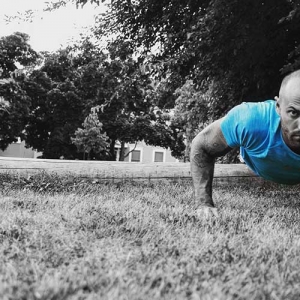Protein Intake For Masters Athletes

There is robust evidence supporting that master athletes (40 years and over) can benefit the same as younger individuals in response to various type of exercise.
These benefits include but not limited to aerobic/aerobic capacity, lean mass (i.e. muscle mass and bone mineral density), strength and power, which can slow down the onset of many clinical conditions associated with ‘normal’ aging. On the other hand, despite the significant level of performance in master athletes, muscle’s breakdown still occurs inevitably to some extent with aging. Therefore, proper nutritional strategies to speed up the recovery process, enhance training adaptations, which are key factors to eventually improve sports performance, are different in master athletes compared with younger athletes.
Protein Intake And Aging
Recently, protein intake and aging has received more attention because dietary protein provides several important impacts for athletes including lowering likelihood of muscle soreness and inflammation in response to exercise, increasing muscle protein synthesis via stimulating physiological pathways and enhancing muscle mass, strength, and endurance performance. As of now, a bulk of available evidence on the dietary protein intake and its impact on athletic performance has been focused on younger athletes whereas a small number of studies with older athletes is available.
According to the most recent nutritional guidelines, it is recommended to consume protein ranging from 1.2-1.7 g/kg/day to support for strength/power athletes, which is also similar to those for endurance athletes. This range, however, is significantly greater than the current Recommended Daily Allowance (RDA) of 0.8g/kg/day for protein, this proposed range should be thought in favor of optimizing exercise-induced adaptions in response to the higher demands of muscle/tissue repair and longer recovery process. This daily protein amount is recommended to be evenly spread over 4-5 daily meals/snacks. In terms of timing, the goal is to supply a dosage of almost 0.3-0.4g/kg prior to training completion (i.e. in the 1-2 h post-exercise window) and every 3-4 hours throughout the day to maximize muscle protein synthesis.
Related Article: Increase Strength, Increase Lifespan
The optimal source of protein for athletic populations remains a place of debate. Those sources that contain all of essential amino acids, particularly leucine, are considered to provide the highest level of muscle protein synthesis response. In this view, animal-based proteins (i.e. whey, milk, beef) appear to be superior to plant-based proteins in muscle remodeling responses, however, dietary intake with higher plant-based protein, or a combination of different plant-based proteins may provide a similar amino acid profile to animal-based proteins that suffice optimizing muscle remodeling.
How would protein intake be different in Master athletes?
 Aging-induced muscle loss begins in the fourth decade of life and is associated with the loss of strength and lack of functionality. To reduce this aging-induced muscle mass loss, daily protein intake should be 1.2g/kg/day for older individuals, which is almost 1.5 time higher than the current RDA, partially because recent evidence shows that higher level of protein intake is needed to stimulate muscle protein synthesis in older individuals. Indeed, while 20-25g rates of leucine-rich whey protein in younger individuals is required to optimize MPS after exercise, older individuals appear to respond to a higher 40g protein dosage (2).
Aging-induced muscle loss begins in the fourth decade of life and is associated with the loss of strength and lack of functionality. To reduce this aging-induced muscle mass loss, daily protein intake should be 1.2g/kg/day for older individuals, which is almost 1.5 time higher than the current RDA, partially because recent evidence shows that higher level of protein intake is needed to stimulate muscle protein synthesis in older individuals. Indeed, while 20-25g rates of leucine-rich whey protein in younger individuals is required to optimize MPS after exercise, older individuals appear to respond to a higher 40g protein dosage (2).
Related Article: The Real Benefits of High Intensity Interval Training
Another key aspect in essential protein requirements for Master athletes is to examine whether well-trained older individuals show same impaired muscle anabolic response to protein and exercise as their sedentary counterparts. Doering et al. (1) recently investigated the recovery response to a 30-minute downhill ‘damaging’ treadmill run in Master (53 years) and younger triathletes (27 years). Performance recovery time was shorter in younger athletes against older athletes, even though 20g of whey protein consumed immediately after the downhill run followed by a diet containing ~1.6g/kg/day of protein during the 3-day recovery phase. Therefore, authors concluded that that Master athletes may require greater dietary protein intakes than the current recommendations for younger athletes to speed up the recovery process.
What are the take-home messages?
According to the current knowledge, some broad guidelines for the master athlete can be recommended. Master athletes (40yrs or older) should consume a higher dose of protein per meal (0.4g/kg, 4-5 times daily). This range is certainly safe and can only be positive. If achieving this range is difficult for some individuals and those are not willing to consume supplements, an additional 1-2 servings of dairy with each meal or nuts/grains can be added to meet the requirements. Also, protein ingestion prior to sleep is probably beneficial for Master athletes. There is evidence support that consuming 40g of casein protein is superior to 20g to enhance overnight muscle protein synthesis rates.
Master athletes is recommended to cut the other two macronutrients (fat and/or carbohydrate) to provide room for the extra protein, particularly if increasing power-to-weight ratio is the main goal for their training or competition.
Related Article: Effect Of Gluten-Free Diet On Endurance Performance
You Might Like:
How Overtraining and Undertraining Impacts Hormonal Health
While maintaining a healthy hormonal balance is essential for overall health and wellbeing, it is an often-overlooked component of women’s health. Hormones play a vital role in regulating various bodily functions, including metabolism, energy, mood,...Can Athletes Benefit from More Mitochondria?
Over the last couple of years, the term “mitochondria” has become a bit of a buzzword in the health and fitness community – but what are they, and how do they impact your health and...Exercising in Poor Air Quality: What You Need to Know
For as long as I can remember, people have been exercising outside. Whether it is going for a run, taking a nice long bike ride, or even doing tai chi in the park – the...Ways to Improve Your Longevity Genes
Humans are currently living longer than ever before. With advancements in healthcare, technology, and knowledge, we have begun to work out what it takes to maintain health across the lifespan, thus enhancing longevity in the...Why people in “Blue Zones” Live longer
It is estimate that between 20 and 25% of your longevity is dictated by your genes – which means that more than 75% is dictated entirely by your lifestyle factors. And while research has given...Does Obesity Increase Your Risk of Coronavirus?
We are currently living in a pretty interesting time. Inundated with bad news stories on every channel, isolated from the outside world with no real social interaction, and completely unable to get the gym and...References
- Doering TM, Jenkins DG, Reaburn PR, Borges NR, Hohmann E, and Phillips SM. Lower Integrated Muscle Protein Synthesis in Masters Compared with Younger Athletes. Med Sci Sports Exerc 48: 1613-1618, 2016.
- Yang Y, Breen L, Burd NA, Hector AJ, Churchward-Venne TA, Josse AR, Tarnopolsky MA, and Phillips SM. Resistance exercise enhances myofibrillar protein synthesis with graded intakes of whey protein in older men. The British journal of nutrition 1-9, 2012.
















